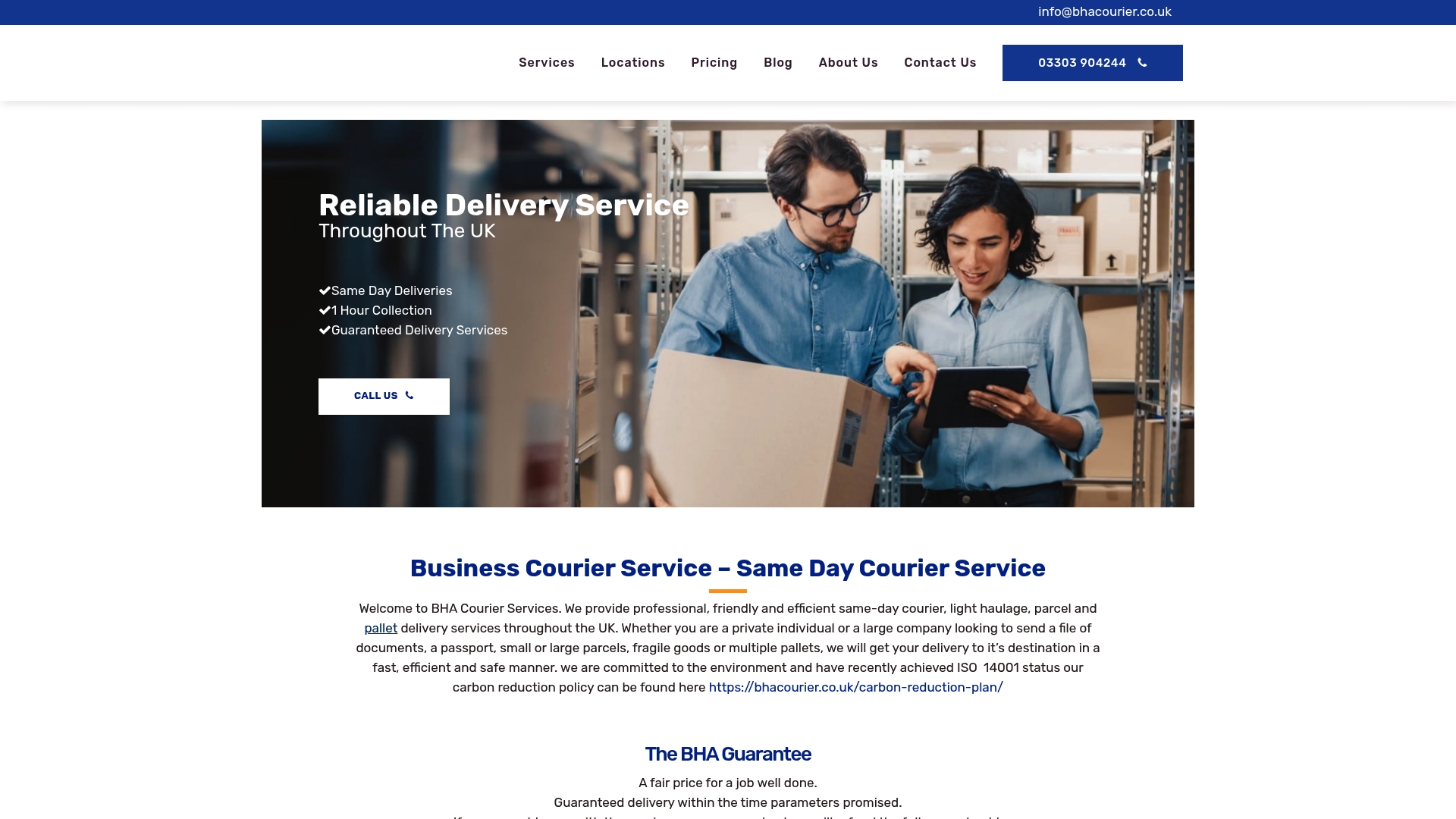
11 Aug Driver Training Requirements for UK Businesses and Individuals
Driver training in the UK is far more than a box-ticking exercise for businesses and individuals. Miss just one step, and the cost can be severe, with professional drivers facing legal penalties if they fail to complete 35 hours of periodic training every five years. Most people focus on the rules and certificates, but what really sets top performers apart is how smart training unlocks safer roads, fewer insurance headaches, and a reputation for excellence that competitors just cannot match.
Table of Contents
- Understanding UK Driver Training Regulations
- Business-Specific Training Requirements And Compliance
- Driver Training For E-Commerce And Time-Sensitive Deliveries
- Choosing The Right Training Provider In The UK
Quick Summary
| Takeaway | Explanation |
|---|---|
| Compliance is crucial for businesses | Adhering to driver training regulations prevents legal penalties and enhances safety. |
| Continuous development of drivers is essential | Ongoing training ensures drivers are updated on safety standards and operational efficiency. |
| Specialised skills are required for modern deliveries | E-commerce drivers need training in advanced navigation and time management skills. |
| Choose training providers wisely | Selecting qualified training providers ensures high-quality, compliant training for drivers. |
| Effective training mitigates risks | Comprehensive training strategies reduce financial risks associated with poor driver performance. |
Understanding UK Driver Training Regulations
Driver training regulations in the United Kingdom form a comprehensive framework designed to ensure road safety, professional competence, and legal compliance for both individual drivers and businesses. These regulations cover multiple aspects of driver education, certification, and ongoing professional development.
Legal Framework for Professional Drivers
Professional drivers in the UK must navigate a complex set of regulatory requirements to operate legally and safely. The Driver Certificate of Professional Competence (Driver CPC) represents a critical component of these regulations. According to government guidelines, professional bus, coach, and lorry drivers must complete 35 hours of periodic training every five years to maintain their certification. This mandatory training ensures drivers remain current with the latest road safety standards, vehicle operation techniques, and regulatory changes.
The Driver CPC is not merely a bureaucratic requirement but a strategic approach to maintaining high professional standards. Drivers must demonstrate ongoing competence through structured training modules that cover critical areas such as advanced driving techniques, health and safety protocols, and technological advancements in transportation.
Regulatory Modernisation and Business Implications
Recent government proposals indicate a significant push towards modernising driver training regulations. According to official government consultation documents, there are ongoing efforts to reform the regulatory framework for Approved Driving Instructors (ADIs). These proposed reforms aim to streamline instructor qualifications, simplify registration processes, and reduce administrative burdens on small businesses.
Businesses must stay informed about these evolving regulations, as non-compliance can result in significant penalties, increased insurance costs, and potential legal challenges. The regulatory landscape requires continuous adaptation, with companies needing to invest in regular staff training and certification updates.
Comprehensive Training Requirements
Driver training in the UK encompasses more than just initial qualification. It involves a holistic approach to professional development that includes initial training, periodic recertification, and specialized skill enhancement. For businesses, this means developing robust internal training programmes that not only meet legal requirements but also enhance overall operational efficiency.
Professional drivers must obtain and maintain multiple certifications, including standard driving licenses, specific category entitlements, and professional competence certificates. Each category of professional driving – whether commercial transport, logistics, or specialized services – has its unique set of training and certification requirements.
For businesses looking to stay ahead, understanding and proactively managing these driver qualification standards is crucial. Implementing comprehensive training strategies not only ensures legal compliance but also demonstrates a commitment to safety, professionalism, and operational excellence.
Business-Specific Training Requirements and Compliance
Business driver training requirements extend far beyond basic licensing, representing a critical component of organisational risk management and operational excellence. UK businesses must navigate a complex landscape of legal obligations, safety standards, and professional development requirements to ensure their drivers are fully compliant and competent.
Organisational Responsibilities and Legal Frameworks
Businesses operating vehicles face substantial legal and financial responsibilities regarding driver training and safety. According to workplace safety guidelines, employers must implement comprehensive driver assessment and training programmes that go beyond standard licensing requirements. This involves conducting thorough skills assessments, maintaining detailed training records, and ensuring continuous professional development for all drivers.
The legal landscape demands that businesses proactively manage driver competence. This includes verifying driving licenses, conducting regular medical assessments, and implementing ongoing training programmes that address emerging safety technologies, changing road conditions, and evolving regulatory requirements. Companies must develop robust internal systems to track and manage these critical compliance elements.
To help clarify business responsibilities and compliance elements, the following table summarises the main organisational requirements for driver training in UK businesses:
| Responsibility | Description |
|---|---|
| Skills Assessments | Conduct thorough driver skills assessments beyond basic licensing requirements |
| Training Records | Maintain detailed, up-to-date records of training and driver development |
| Continuous Professional Development | Ensure ongoing training for all drivers to address new regulations, safety protocols, and technology |
| Licence Verification and Medical Checks | Regularly verify driver licences and perform required medical assessments |
| Internal Compliance Tracking | Develop robust systems to track compliance with legal and organisational training obligations |
| Addressing Technology and Road Changes | Update training to reflect new vehicle technology and evolving road conditions |
Professional Certification and Skill Development
Professional driver certification represents a multifaceted approach to workforce development. Businesses must ensure their drivers not only meet minimum legal requirements but also possess advanced skills that contribute to operational efficiency and safety. This involves investing in specialized training programmes that cover areas such as defensive driving techniques, vehicle maintenance awareness, and advanced navigation skills.
For logistics and transportation companies, driver training goes beyond simple compliance. It becomes a strategic investment in workforce capability. Companies must develop comprehensive training modules that address technical skills, safety protocols, customer service expectations, and technological proficiency. These programmes should be dynamic, regularly updated to reflect changes in technology, regulations, and industry best practices.
Risk Management and Compliance Strategies
Effective driver training is fundamentally a risk management strategy. Businesses must implement systematic approaches to driver assessment, ongoing education, and performance monitoring. This involves creating detailed training records, conducting regular skills assessments, and developing personalised development plans for drivers.
Financial implications of inadequate driver training can be substantial. Businesses face potential risks including increased insurance costs, legal liabilities, and operational disruptions. Proactive training programmes help mitigate these risks by ensuring drivers are fully prepared to handle complex driving scenarios, understand safety protocols, and maintain high professional standards.

For businesses seeking to optimise their driver qualification standards, a holistic approach to training and compliance is essential. This means looking beyond minimum legal requirements and developing comprehensive programmes that enhance driver skills, reduce organisational risk, and demonstrate a genuine commitment to safety and professional excellence.
Driver Training for E-commerce and Time-Sensitive Deliveries
The explosive growth of e-commerce has fundamentally transformed delivery requirements, creating unique challenges and training needs for drivers specialising in time-sensitive logistics. Modern delivery professionals must possess a sophisticated skill set that goes beyond traditional driving competencies, integrating technological proficiency, customer service excellence, and advanced operational strategies.
Specialised Skills for Modern Delivery Drivers
E-commerce delivery drivers require a comprehensive training approach that addresses the complex demands of contemporary logistics. According to transportation safety research, there is an increasing need for specialized training in hazard recognition, hours-of-service compliance, and advanced crash avoidance techniques. These skills are particularly crucial for drivers managing high-frequency, time-critical delivery routes.
Key training components must include advanced navigation technologies, understanding real-time tracking systems, and developing strategies for efficient route management. Drivers need to learn how to balance speed with safety, manage tight delivery windows, and handle the psychological pressures of time-sensitive logistics. This involves training in stress management, customer interaction protocols, and quick decision-making skills.
Technology and Performance Management
Digital technologies have revolutionised delivery operations, requiring drivers to become proficient with sophisticated tracking, communication, and routing platforms. Training programmes must incorporate comprehensive technological education, ensuring drivers can effectively use GPS systems, mobile communication tools, and digital proof-of-delivery platforms.
Performance metrics in e-commerce delivery are increasingly data-driven. Drivers must understand how their performance is measured, including metrics like delivery time, customer satisfaction ratings, and package handling efficiency. This requires a training approach that goes beyond traditional driving skills and focuses on holistic performance management.
Health and Safety in High-Pressure Delivery Environments
Time-sensitive delivery environments present unique health and safety challenges. Professional logistics safety guidelines emphasise the importance of comprehensive training that addresses physical and mental well-being. Drivers must be educated on ergonomic loading techniques, stress management strategies, and maintaining personal health during demanding delivery schedules.
Businesses must develop training programmes that prepare drivers for the physical and psychological demands of e-commerce logistics. This includes training on proper lifting techniques, managing tight delivery schedules, handling customer interactions under pressure, and maintaining personal well-being in high-stress environments.
For businesses looking to enhance their delivery driver qualifications, investing in comprehensive, technology-driven training programmes is essential. The future of e-commerce delivery depends on drivers who are not just skilled operators, but adaptable professionals capable of meeting the dynamic demands of modern logistics.

Choosing the Right Training Provider in the UK
Selecting an appropriate driver training provider is a critical decision for businesses and individuals seeking to develop professional driving skills and meet regulatory requirements. The right training partner can significantly impact driver competence, safety, and organisational effectiveness.
Evaluating Training Provider Credentials
Businesses must conduct thorough due diligence when selecting a driver training provider. According to the UK government’s National Standard for Driver and Rider Training, trainers should demonstrate exceptional instructional abilities and maintain high standards of driving proficiency. Key criteria for evaluation include official accreditations, instructor qualifications, and a proven track record of delivering comprehensive training programmes.
To assist in selecting a suitable driver training provider, the following table compares key criteria to evaluate training providers in the UK:
| Criteria | What to Look For | Why It Matters |
|---|---|---|
| Official Accreditations | Provider is certified by recognised bodies | Confirms legitimacy and compliance |
| Instructor Qualifications | Trainers hold valid, relevant credentials and experience | Ensures high instructional standards |
| Industry Experience | Proven track record in specific sectors (e.g., logistics, e-commerce) | Demonstrates relevant expertise |
| Customised Training Programmes | Offers tailored modules for business and vehicle type | Addresses specific organisational needs |
| Up-to-date Curriculum | Reflects current regulations and technological advances | Keeps training effective and compliant |
| Support for Ongoing Development | Provides resources for continuous learning and recertification | Maintains driver competence over time |
Credential verification involves checking certifications, assessing the provider’s experience in specific industry sectors, and reviewing their training methodologies. Reputable providers should offer transparent documentation of their instructional approach, curriculum details, and compliance with national driver training standards. This ensures that training programmes are not just theoretical but practically oriented towards real-world driving challenges.
Comprehensive Assessment and Training Approaches
The Health and Safety Executive emphasizes the importance of holistic driver assessment. Training providers should offer comprehensive evaluations that go beyond basic driving skills, including physical and mental fitness assessments. This approach ensures that drivers are not only technically competent but also mentally prepared for the demands of professional driving.
Effective training providers should offer customised programmes that address specific organisational needs. This includes tailored training modules for different vehicle types, industry-specific challenges, and varying levels of driver experience. The best providers create interactive learning environments that promote active engagement, practical skill development, and continuous professional improvement.
Legal Compliance and Ongoing Professional Development
Choosing a training provider involves careful consideration of their approach to legal compliance and ongoing professional development. According to workplace safety guidelines, training should cover critical areas such as risk management, regulatory requirements, and evolving industry standards. Providers must demonstrate a commitment to keeping their training content current and aligned with the latest legal and technological developments.
Businesses should seek training partners who offer more than just initial certification. The ideal provider will support ongoing driver qualification standards, providing resources for continuous learning, periodic skill assessments, and adaptation to changing industry requirements. This approach ensures that drivers maintain their competence and remain updated with the latest safety protocols and technological advancements.
Ultimately, selecting the right training provider is an investment in organisational safety, efficiency, and professional excellence. By carefully evaluating potential partners against rigorous standards of instructional quality, legal compliance, and comprehensive skill development, businesses can ensure they are preparing their drivers for the complex challenges of modern professional driving.
Frequently Asked Questions
What are the periodic driver training requirements for professional drivers in the UK?
Professional drivers in the UK must complete 35 hours of periodic training every five years to maintain their Driver Certificate of Professional Competence (Driver CPC).
Why is driver training important for UK businesses?
Driver training is crucial for UK businesses to ensure legal compliance, enhance safety on the roads, reduce insurance costs, and improve overall operational efficiency.
What specialised skills do e-commerce delivery drivers need?
E-commerce delivery drivers require training in advanced navigation, time management, hazard recognition, and customer service to meet the demands of modern time-sensitive logistics.
How can businesses choose the right training provider for their drivers?
Businesses should evaluate training providers based on accreditation, instructor qualifications, industry experience, customised training programmes, and their commitment to ongoing professional development.
Ensure Safe, Seamless Deliveries With Drivers Who Meet UK Standards
Staying compliant with UK driver training regulations is not just about ticking boxes. It protects your reputation and keeps your business running smoothly. Missed qualifications or outdated training can lead to legal trouble, higher insurance costs, and missed delivery deadlines. If your business depends on reliable, secure, and speedy logistics, you need more than just qualified drivers. You need a courier partner who understands the value of professionalism and ongoing competence.

Choose BHA Courier for your urgent and secure parcel movements. We invest in continual driver development to meet and exceed the UK’s strict training requirements. With our time-critical courier services, your deliveries are handled by skilled drivers who put safety, compliance, and speed first. Do not risk your operations or customer trust. Visit BHA Courier now to get started and experience the peace of mind that comes with true delivery expertise.
Recommended
- Essential Delivery Driver Qualifications in 2025 for UK Businesses – BHA Couriers
- Health and Safety in Logistics: Essential Guide for UK Businesses 2025 – BHA Couriers
- Shipping Hazardous Materials in the UK: 2025 Guide for Businesses – BHA Couriers
- What Insurance Do Couriers Need? A Comprehensive Guide – BHA Couriers


